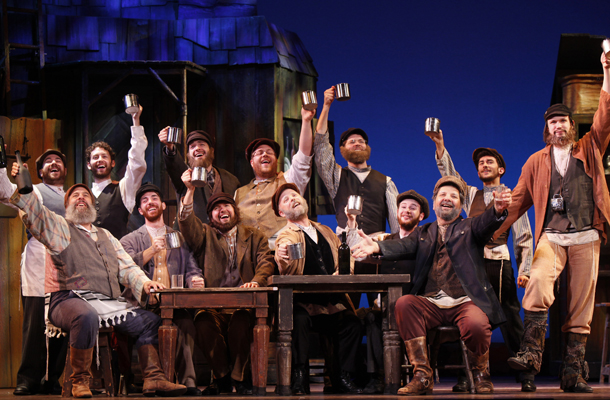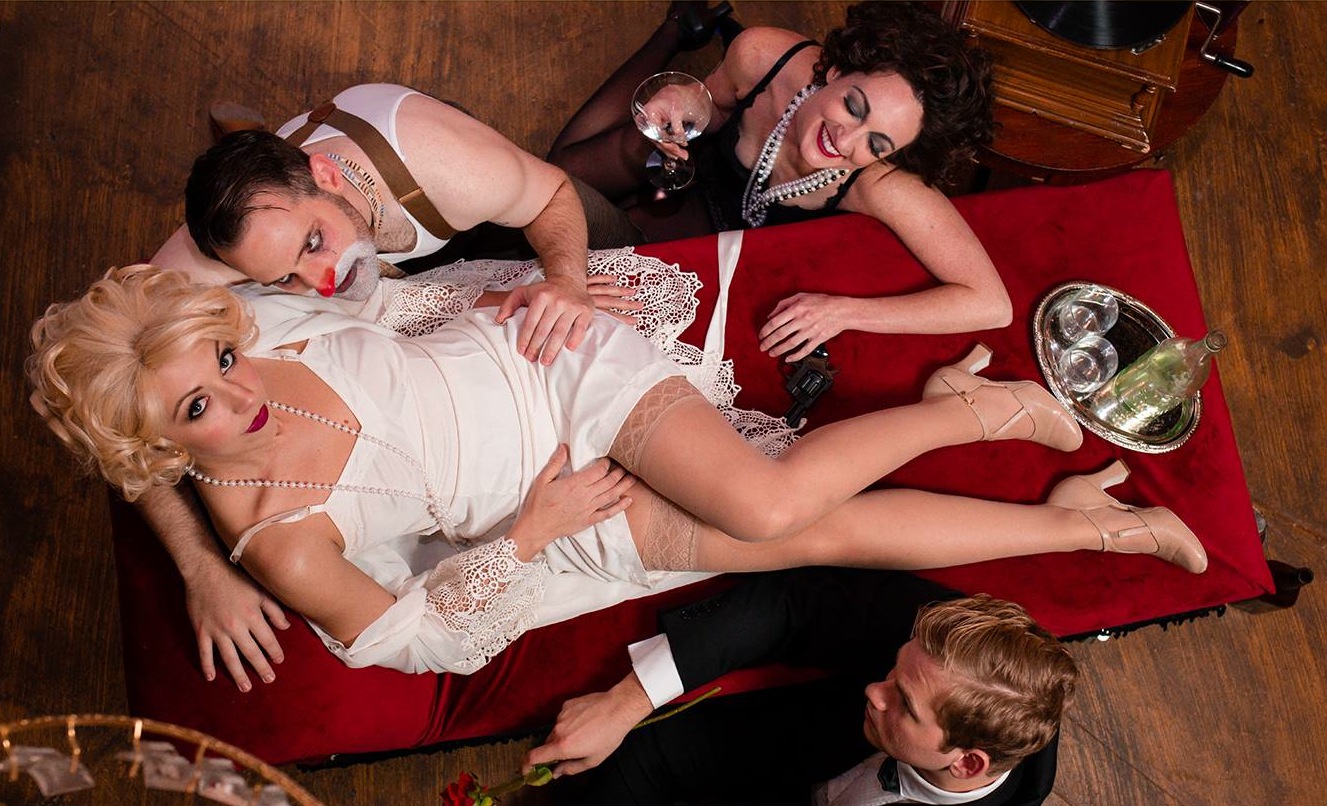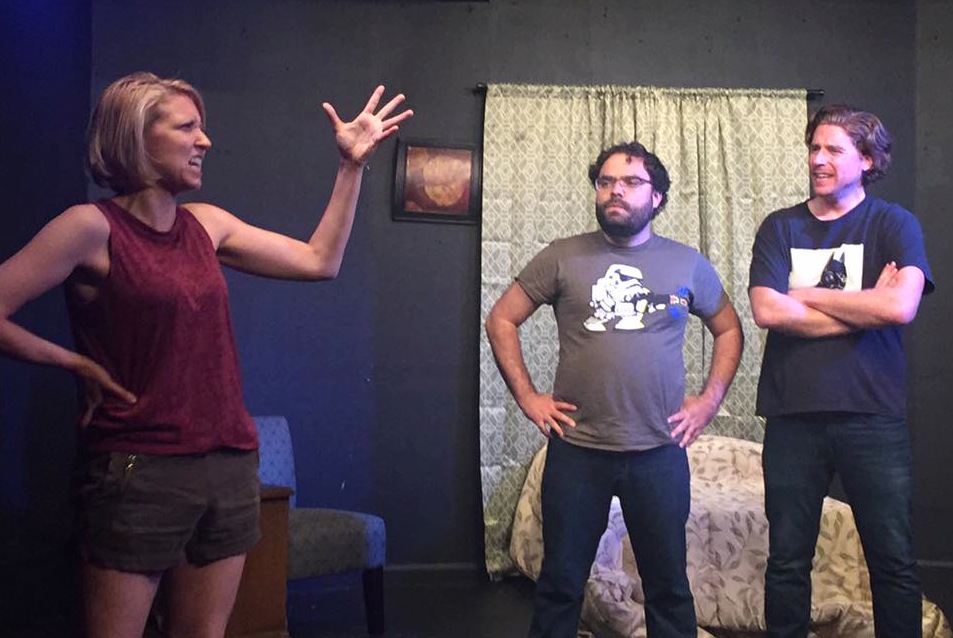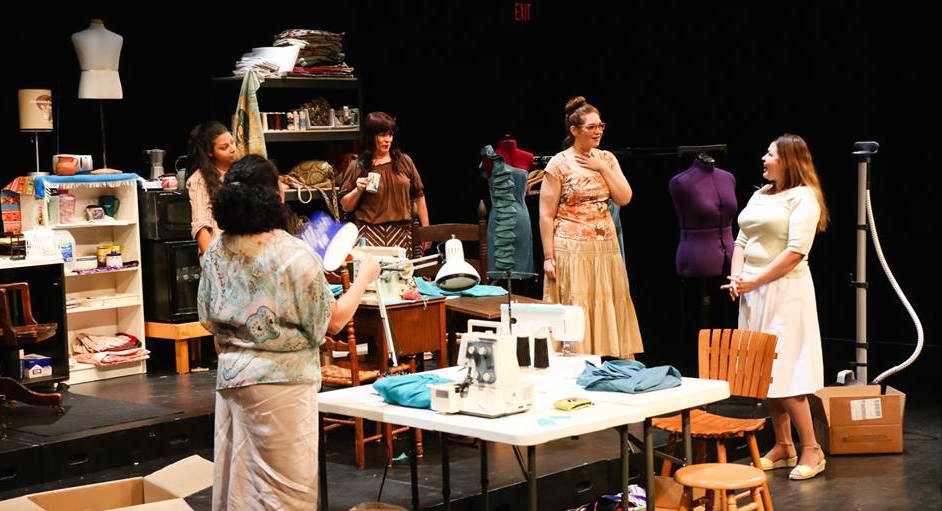The company of Fiddler on. the Roof. Photo: Joan Marcus
Fiddler on the Roof
Book by Joseph Stein
Music by Jerry Bock, Lyrics by Sheldon Harnick
Original Broadway choreography by Jerome Robbins
Directed by Bartlett Sher
A review by Tory Parker
Entire contents are copyright © by 2022 Tory Parker. All rights reserved.
Are you tired of the modern musical? Are all these new, “social justice focused” shows just too “PC” and too “woke” to be any good? What ever happened to good, old-fashioned singing and dancing? To entertainment? “Hey,” you think, “I hear Fiddler on the Roof is at the Kentucky Center! That was written in the 60s, which is close enough to the Golden Age, back when people really knew how to write a musical!” And so you put on your best Chico’s trousers and 2015 JC Penney-brand sweater-jacket and you head downtown for an evening of pure, old-school, charming theatre. Right?
WRONG. I mean, yes, Fiddler IS old-school, and it IS charming, but it is far from the sanitized ideals of the so-called “Golden Age” and it is, to its very core, a story about the harsh reality of political decisions on the most vulnerable.
Based on the collection of stories, Tevye and His Daughters, by Sholem Aleichem, Fiddler on the Roof follows Tevye the Jewish dairyman in his small Russian shtetl in the early 20th century. As the world changes around them, Tevye and the town desperately try to cling to tradition—the one thing keeping their tentative balance intact. But as the new world creeps into the old, Tevye and his wife, Golde, reckon with the unconventional marriages of their three eldest daughters, who determinedly marry for love. Meanwhile, the threat of violence looms ever larger as the Russian constable warns of state-sanctioned violence or “pogroms” against the neighboring Jewish villages such as Tevye’s. At the end of the play, the entire village of Anatevka is forced into exile by order of the Tsar. As the final melancholy fiddling plays, we watch them embark on yet another diaspora—some to America, some to Poland, some even farther.
This most recent revival of the show (on which the tour is based) premiered on Broadway in 2015—virtually a different world than 2022, a wildly different world than 1964 when it first premiered on the stage, and almost unrecognizable to the world of rural Russia in 1905. But this beautiful reimagining lives into the relevance of the story and its characters, and it brings you along in that belief.
The first half of the show is filled to bursting with joy and good humor. Tevye is a poor man, chronically ill-contented with his lot, but seemingly rarely unhappy. He lives his life as The Papa as he has been expected to. Jonathan Hashmonay is a young, energetic Tevye, whose joy in playing the character is evident from the moment he puts on the cap at the top of the show. He manages to find every nuance of the character—his protectiveness and love of his wife and daughters, his exasperation with an ambivalent God, his fear at encroaching violence, and the trepidation entwined with childlike bewilderment at the threat of change.
The first half also benefits from songs and moments quintessential to the musical theatre canon: “Tradition,” “Matchmaker, Matchmaker,” “If I Were A Rich Man,” “To Life,” “Miracle of Miracles,” and more. The set pieces float on and off stage, never too heavy or overdone, leaving room for the vibrance of a large ensemble. And while the choreography is not Robbins’ original, it is recognizable, with lively stomping and hand-waving grounding the raw athleticism you can expect from a national tour of 2 dozen 20-something triple threats looking to cut their teeth.
Director Bartlett Sher’s choices come to life in the second half. Following a violent attack during the wedding of oldest daughter Tzietel (Randa Meierhenry) and the poor but loveable tailor, Motel (Daniel Kushner), there is a current of discord running through the town. The stage grows starker, more barren, and the lighting dims and cuts, as the world gets colder. The Russian constable, often portrayed as a kind man of honor, Sher makes clear is a sleazy cog in a violent machine, playing friends with the Jewish villagers until the very second he pulls off the wool to reveal his teeth.
But while the impending threat of the Tsar is frightening, true heartbreak comes to Tevye in the shape of his next oldest daughters. Hodel, played with an indescribable elegance wrapped in tenderness by Graceann Kontak, falls for the rebel student, Perchik (Austin J. Gresham) and follows him to Siberia, where he is imprisoned. As a self-professed Daddy’s Girl, “Far From the Home I Love” always leaves me a little misty, and Kontak plays it not with a sense of exuberance but with resignation, making the father/daughter parting absolutely devastating.
Tevye reaches his breaking point with middle daughter Chava (Yarden Barr), who marries, not only without a matchmaker, but outside of the faith. Tevye, who longs to study the scriptures, who believes in the value of learning, of seeing all sides, who has already made unbelievable strides for his other daughters, cannot bend his belief enough to reconcile this betrayal. “If I bend that far,” he cries to God, “I’ll break!” It is the worst fear, come to life, the gut punch for anyone raised in a house guided by beliefs and conformities into which they cannot fit. “Love me,” it says, “Please love me more than you need this,” and knowing they can’t.
But this is a show about balance. As young people fall in love, finding freedom in challenging tradition, the walls are closing in around them. Townspeople gather in Tevye’s barn as the constable and his officers deliver the news of their exile, effective immediately. The wall of the barn is far downstage, cramming the people together, and the black slats cast dark shadows and slits of white light on the audience. As the cast moves to sing behind the hanging piece, the slats are suddenly eternal. They are the walls of a cattle car, of a barrack, of prison bars, the sides of a ship, a lifeboat crammed to the brim, shakily making its way to the Turkish coast.
Fiddler on the Roof ends far more hopefully than Tevye and His Daughters, which ends in abject tragedy. Or it can end hopefully, if you want it to. Sher’s interpretation is stark, the hopeful words of reuniting, the excitement of finding a new place, of diving into change rather than fighting it, ring so false and brutal on the cold, empty stage. At last, we see only silhouettes, carrying what little they have left, circling the stage as the curtain falls. Following the final bow, the cast testified to the tragic relevance of this story of Eastern European refugees, dedicating their every performance to the victims of the war on Ukraine. 2022, it seems, is not so far from 1905 after all.
Fiddler on the Roof
October 18 – 23, 2022
Broadway in Louisville
Kentucky Performing Arts
501 West Main Street
Louisville, KY 40202
Tory Parker is originally from West Virginia, graduated from Centre College, and now works in marketing at the Waterfront Botanical Gardens. In Louisville, she’s worked and performed with Claddagh Theatre Company, the Chamber Theatre, Bellarmine University, Wayward Actors Company, Derby City Playwrights, Company Outcast and director Emily Grimany. As a playwright, her original works appeared in the National Women’s Theatre Festival in their 2020 and 2021 Fringe Festivals.





